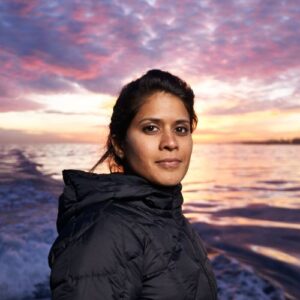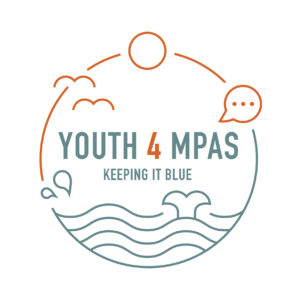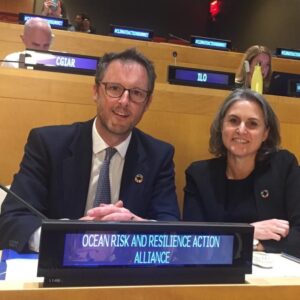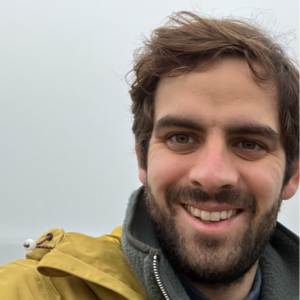Celebrating the “the planet’s most underestimated natural climate moderator”
To mark this year's World Oceans day, leading ocean advocates explain why ocean solutions are pivotal to a decarbonized, just, prosperous and resilient world.
By Charlotte Owen-Burge | June 8, 2022

Image: Spencer Lowell/WIRED UK
Asha de Vos
is an internationally acclaimed Sri Lankan marine biologist, ocean educator, pioneer of long-term blue whale research within the Northern Indian Ocean, founder of Oceanswell and strong advocate for diversity and equity in marine conservation. She is a National Geographic Explorer, was on the 2018 BBC 100 Women list, named Scubadiving magazine’s Sea Hero of the Year 2020 and awarded a Tällberg-SNF-Eliasson Global Leadership Prize in 2021.
“The ocean is perhaps the planet’s most underestimated natural climate moderator. What most people fail to realise is that coastal ecosystems like mangroves, salt marshes, seagrass meadows and kelp forests hold more carbon, hectare for hectare, than any rainforest. In fact, seagrass beds are one of the most efficient ways of reabsorbing carbon, ahead of rainforests. Because the ocean absorbs more carbon than it releases, it is one of the most important carbon sinks on our planet. By absorbing approximately 30% of all carbon dioxide emissions generated to date, and more than 90% of excess heat, the ocean has reduced the effects of emission-driven climate change making our planet more liveable than it would otherwise be.”

Carlos Manuel Duarte
is a marine ecologist conducting research on marine ecosystems globally, from polar to the tropical ocean and from near-shore to deep-sea ecosystems. His research addresses biodiversity in the oceans, the impacts of human activity on marine ecosystems, and the capacity of marine ecosystems to recover from these impacts. He is currently a Distinguished Professor at the King Abdullah University of Science and Technology and Executive Director of the Coral Research and Development Accelerator Platform
“The ocean is the engine room of planet Earth, buffering and redistributing heat while removing excess greenhouse gases from the atmosphere. Marine life contributes by removing carbon through photosynthesis and safely storing it in the seafloor and deep-sea water, but we have lost about half of the “blue natural capital” performing this function. Marine energy is an underexplored option to source renewable energy, while blue carbon is a rapidly-growing strategy to contribute to climate mitigation and adaptation by conserving and restoring marine habitats that act as intense carbon sinks. A healthy ocean will propel us in our Race to Zero and will be a legacy supporting the wellbeing of generations to come.” Read more from Professor Duarte here.

Cristina Goettsch Mittermeier
is a Mexican photographer, conservationist, author, marine biologist and activist who pioneered the concept and field of conservation photography.
“If I invite you to close your eyes for a minute and think about our planet, what do you see? You see a little blue marble floating in the big universe. And the reason it’s blue is because it’s covered in ocean and this ocean is not just water, it’s a living broth; it’s alive. If you look with a microscope, you can find a microscopic rainforest but you can also find the largest animals on our planet. It is the most important ecosystem on the planet. One that generates the most oxygen, that sequesters the most carbon. It moderates temperature, provides rain precipitation, the currents and wind. But it’s a victim because we have abused it. We have taken too much away and we have dumped too much into it. But we also need to see it as the solution and all we have to do is protect it.” Read the full interview with Cristina here.
Sylvia Earle
is President and Chairman of Mission Blue / The Sylvia Earle Alliance. She is a National Geographic Society Explorer in Residence, and is called Her Deepness by the New Yorker and the New York Times, Living Legend by the Library of Congress, and first Hero for the Planet by Time Magazine. She is an oceanographer, explorer, author and lecturer with experience as a field research scientist, government official, and director for several corporate and non-profit organizations.
“In the 21st century we have to get over the idea that we can feed the world with wildlife. We used to do it with wild birds and furry things on the land. We used to regard whales as commodities. We’ve seen a change. In Davos in 2020, a value on living whales — blue carbon — for climate was put at $1trillion for whales. I haven’t seen a figure yet for the living value of all the other blue carbon in the ocean. What are tuna alive worth as compared to tuna dead? What are krill in Antarctica alive versus dead worth? When you take them out of the ocean, you release CO2 and methane into the atmosphere contributing to the climate issue of excess CO2. Keep those animals, keep the plankton that feed the animals that hold the carbon, that sequester the carbon, in the ocean. I think understanding the carbon cycle should be as basic as learning your alphabet, as basic as learning your numbers. We tend to follow the money. We need to follow the carbon because that translates to life. Our lives. You can’t eat money. We have to think differently about what the living planet is worth because it’s our existence that is dependent on it.” Read the full interview here.

Emilia Jankowska, Project Drawdown 2021 Senior Fellow, Oceans
Emilia Jankowska, Mamta Mehra, Chad Frischmann
– Project Drawdown, a nonprofit organization that seeks to help the world reach “drawdown”—the future point in time when levels of greenhouse gases in the atmosphere stop climbing and start to steadily decline.
“Shifting the oceans dialogue from “victim” to “solution” is a game-changer. Stopping and reversing marine habitat degradation is a powerful tool for carbon sequestration, but it would also halt devastating biodiversity loss and provide climate change adaptation for marine organisms and coastal communities. Improving the ways we catch, produce, and consume seafood will not only reduce GHG emissions but also allow global fish populations to regrow, securing food for future generations while eliminating inequalities in the fishing industry. Oceans, therefore, offer cascading benefits that go far beyond the climate crisis…We have little time to fix our climate and without ambitious, sustainable oceans management, the potential of blue carbon habitats and ocean-based solutions weakens. Ocean-based solutions not only mitigate climate change—they play a large role in climate adaptation and add benefits core to successful Sustainable Development Goals that benefit people and the planet. When we think about climate solutions, we must never forget the power of Earth’s oceans.” Read the full article here.
The Youth of Africa
YOUTH4MPAs comprise a group of African marine enthusiasts from all walks of life, with one common goal – to advocate for the proclamation and expansion of Marine Protected Areas (MPAs) in our oceans.

“We urge you to not neglect the ocean, because without the ocean our fight against the climate crisis would be incomplete and ineffective. We need to come together to protect both land and sea, in a collective manner that will help sustain our planet for the generations to come…It is now well-recognised that the global 30×30 target of protecting our oceans is not only important for the long-term health of our oceans, but is also a target that needs to be implemented immediately to prevent further degradation and collapse of these ecosystems.” To read the full article, please click here.

Chip Cunliffe and Karen Sack
Co-Chairs for the Ocean Risk and Resilience Action Alliance, a Race to Resilience Partner Initiative that pioneers innovative finance products that drive investment in marine and coastal natural capital, reduce ocean and climate risks, and build resilience in coastal communities.
“The good news is that there is already real momentum towards protecting our biodiversity and global resilience through the ocean. The WWF Report, Reviving The Ocean Economy: The Case for Action placed a value of US$24 trillion on the ocean, creating a baseline for driving investment into coastal and marine natural capital; mitigating risk and building resilience in communities adapting to climate change. This investment is crucial. We need a new generation of financial backers from institutional investors to family offices, and from banks to insurers to put capital to work in the ocean. This will fight climate change, it will protect coastal communities and it will preserve the assets that people around the world depend on for their livelihoods and for their financial security.” Read the full article here.
Tibor Vegh & Ignace Beguin
Associate Advisor – Oceans, UN Climate Change High-Level Champions; Senior Policy Associate, Duke University | Ocean Lead, UN Climate Change High-Level Champions.
“When restored and protected, coastal habitats are important natural buffers to sea-level rise and storm surges, playing an essential role in ensuring the resilience of coastal communities, and reducing coastal risks, around the world. A business-as-usual trajectory entails great risk to our economies, with a cost potentially reaching up to US$8.4 trillion over the next 15 years. In the next 15 years, damage is projected to increase to coastal real estate, ports, shipping, marine renewable energy and seafood as a result of climate change. Up to US$3.98 trillion is at risk to coastal infrastructure and almost US$3 trillion to global fisheries if no action is taken. However, healthy coral reefs, as part of a coastal resilience strategy, can reduce the annual expected damages from storms to human life and property by more than $4 billion.” Read the full article here.
A business-as-usual trajectory entails great risk to our economies, with a cost potentially reaching up to US$8.4 trillion over the next 15 years. In the next 15 years, damage is projected to increase to coastal real estate, ports, shipping, marine renewable energy and seafood as a result of climate change. Up to US$3.98 trillion is at risk to coastal infrastructure and almost US$3 trillion to global fisheries if no action is taken. However, healthy coral reefs, as part of a coastal resilience strategy, can reduce the annual expected damages from storms to human life and property by more than $4 billion.” Read the full article here.









 A business-as-usual trajectory entails great risk to our economies, with a cost potentially reaching up to US$8.4 trillion over the next 15 years. In the next 15 years, damage is projected to increase to coastal real estate, ports, shipping, marine renewable energy and seafood as a result of climate change. Up to US$3.98 trillion is at risk to coastal infrastructure and almost US$3 trillion to global fisheries if no action is taken. However, healthy coral reefs, as part of a coastal resilience strategy, can reduce the annual expected damages from storms to human life and property by more than $4 billion.” Read the full article
A business-as-usual trajectory entails great risk to our economies, with a cost potentially reaching up to US$8.4 trillion over the next 15 years. In the next 15 years, damage is projected to increase to coastal real estate, ports, shipping, marine renewable energy and seafood as a result of climate change. Up to US$3.98 trillion is at risk to coastal infrastructure and almost US$3 trillion to global fisheries if no action is taken. However, healthy coral reefs, as part of a coastal resilience strategy, can reduce the annual expected damages from storms to human life and property by more than $4 billion.” Read the full article